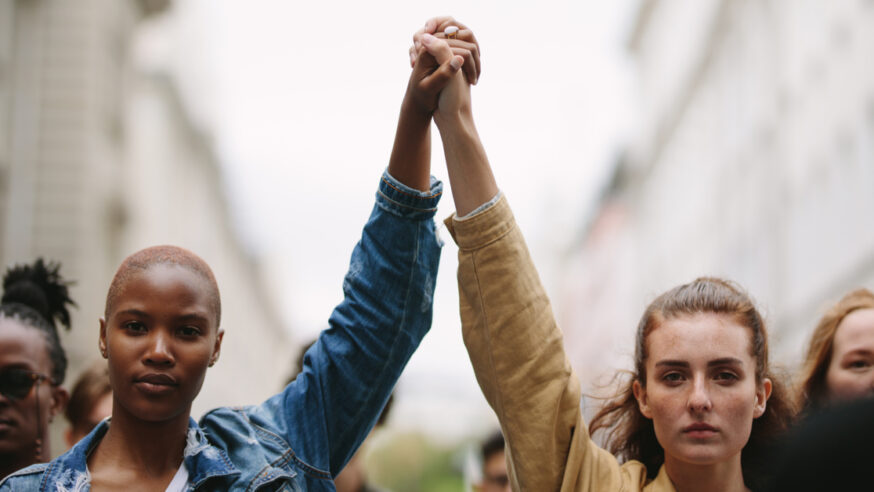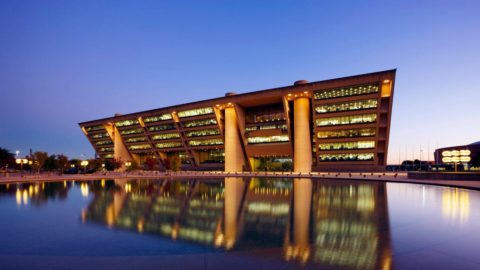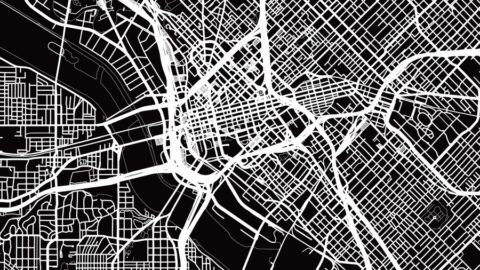Dallas Office of Equity and Inclusion celebrates Human Rights Day
The City of Dallas recognizes Human Rights Day on December 10 and the global initiative to stand up for human rights. Human Rights Day in 2020 relates to the COVID-19 pandemic and focuses on the need to Recover Better by ensuring human rights are at the heart of the recovery efforts.
Due to the challenges posed by the COVID-19 pandemic, the City of Dallas is focusing on Recovering Better when it comes to social and racial inequities.
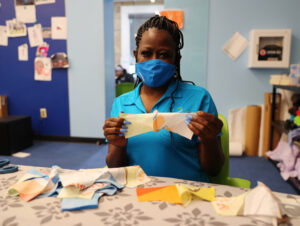 “Our team has been hard at work to amplify the needs of Dallas’ most vulnerable populations,” said Chief of Equity and Inclusion Liz Cedillo-Pereira. “These efforts multiplied as the COVID-19 pandemic made everyone more aware of the inequities that exist in outcomes for Communities of Color and vulnerable residents. We are pleased to be involved in recovery efforts to make Dallas stronger and more equitable.”
“Our team has been hard at work to amplify the needs of Dallas’ most vulnerable populations,” said Chief of Equity and Inclusion Liz Cedillo-Pereira. “These efforts multiplied as the COVID-19 pandemic made everyone more aware of the inequities that exist in outcomes for Communities of Color and vulnerable residents. We are pleased to be involved in recovery efforts to make Dallas stronger and more equitable.”
The City of Dallas has various initiatives created to stand up for human rights.
“ADA Compliance, veteran’s rights, domestic violence, human trafficking, and mental health awareness are just some of the efforts we are undertaking to advance human rights in Dallas,” said Human Rights Officer LaToya Jackson. “As the City’s first human rights officer, I am pleased to join the Office of Equity and Inclusion at this critical time.”
Human Rights Day began on December 10, 1948 when the United Nations General Assembly adopted the Universal Declaration of Human Rights.
The Universal Declaration of Human Rights outlines a broad range of fundamental human rights and freedoms that all people are entitled to. The declaration guarantees rights without distinction of nationality, place of residence, gender, national or ethnic origin, religion, language, or any other status.
R.E.A.L. CHANGE
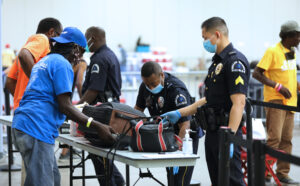 In June 2020, Dallas became one of first major cities to produce policing transformations. Dallas City Manager T.C. Broadnax delivered a set of 11 action steps in the Dallas Police Department (DPD) that are focused on accelerating an effort to foster and build trust among myriad Dallas communities and DPD. The reforms include specific and concrete measures that will alter long-time policing policies in Dallas.
In June 2020, Dallas became one of first major cities to produce policing transformations. Dallas City Manager T.C. Broadnax delivered a set of 11 action steps in the Dallas Police Department (DPD) that are focused on accelerating an effort to foster and build trust among myriad Dallas communities and DPD. The reforms include specific and concrete measures that will alter long-time policing policies in Dallas.
“We have definitely made progress,” said Broadnax, “but we acknowledge it’s not enough. R.E.A.L. change mandates more innovations, both short-term and long-term that will create safer neighborhoods and modify police protocols and policies.”
Learn more about R.E.A.L. Change here.
FINES AND FEES
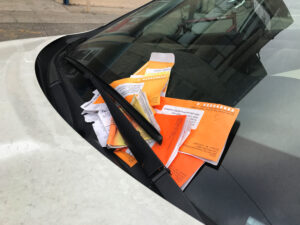 Leveraging the existing Resilient Dallas plan and its focus on equity, the City of Dallas is actively participating in the inaugural class of municipal leaders in the Cities & Counties for Fine and Fee Justice network. One of the key components of its participation in the cohort is to engage and receive input from the community to better understand how fines, imposed fees and financial penalties impact their lives. To accomplish this, Dallas has launched an online survey and is working closely with its partners and stakeholders to gather the feedback.
Leveraging the existing Resilient Dallas plan and its focus on equity, the City of Dallas is actively participating in the inaugural class of municipal leaders in the Cities & Counties for Fine and Fee Justice network. One of the key components of its participation in the cohort is to engage and receive input from the community to better understand how fines, imposed fees and financial penalties impact their lives. To accomplish this, Dallas has launched an online survey and is working closely with its partners and stakeholders to gather the feedback.
The survey data will inform the City’s efforts to address the problem of fines and fees as a means of revenue. This work is part of a growing national movement recognizing the disproportionate impact fines and fees have on people of color and people who are struggling to make ends meet. To learn more and participate in the survey, click here.
DALLAS AS A WELCOMING CITY FOR IMMIGRANTS AND REFUGEES
 Since 2017, the City of Dallas has made a commitment to becoming a welcoming city for immigrants and refugees that live and work in the city. This commitment has been carried out through multiple policies, services, and programs including:
Since 2017, the City of Dallas has made a commitment to becoming a welcoming city for immigrants and refugees that live and work in the city. This commitment has been carried out through multiple policies, services, and programs including:
- Removing citizenship and immigration status requirements to serve on authorities, boards, and commissions
- Expanding access to legal services that increase naturalization and provide legal defense in deportation proceedings
- Promoting empathy and understanding of diverse cultures through community events and celebrating Immigrant Heritage Month
- Ensuring equitable access to resources in response to the pandemic, including PPE and financial assistance payments to immigrants and refugees who did not qualify for federal economic relief programs
- Increasing language access by augmenting bilingual staff positions and establishing the Virtual Language Center. The Virtual Language Center will be housed in the Office of Communications, Outreach, and Marketing and will serve as a trusted primary source of information through excellent written, spoken, and interpreted messages and programs.
Written by Roxana Rubio

